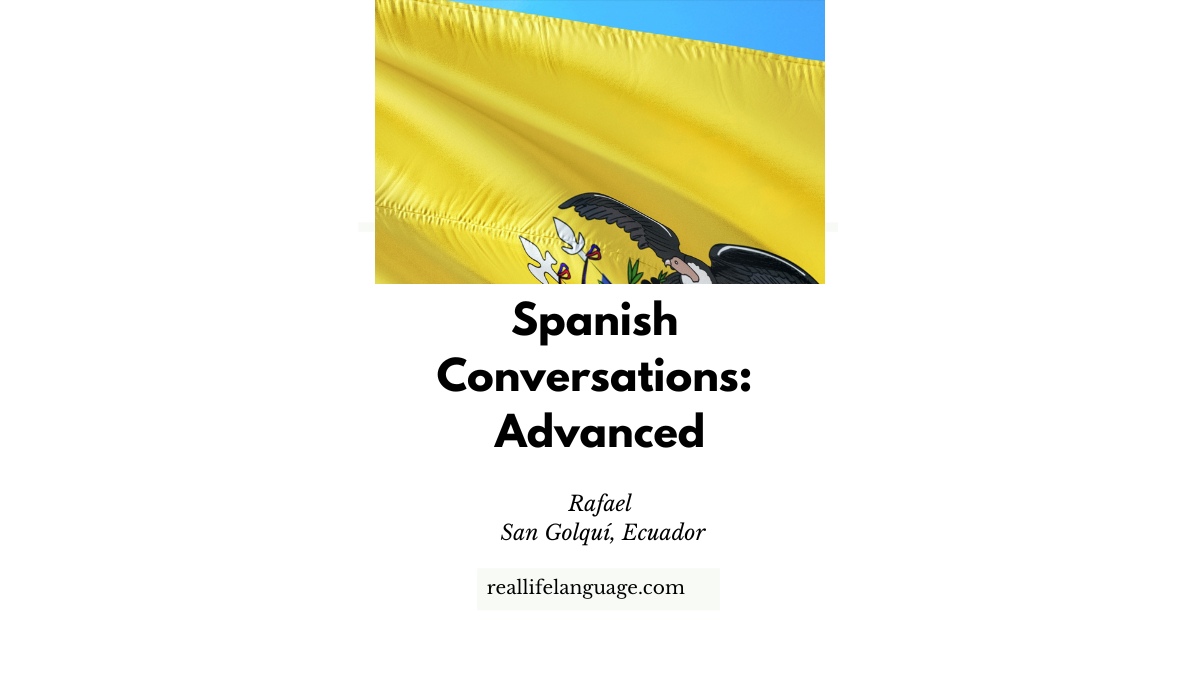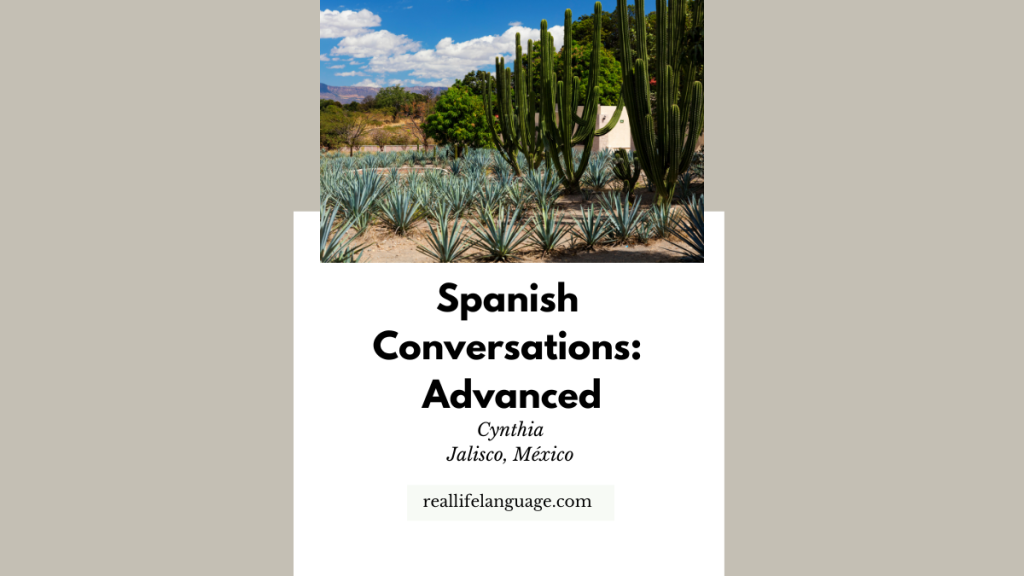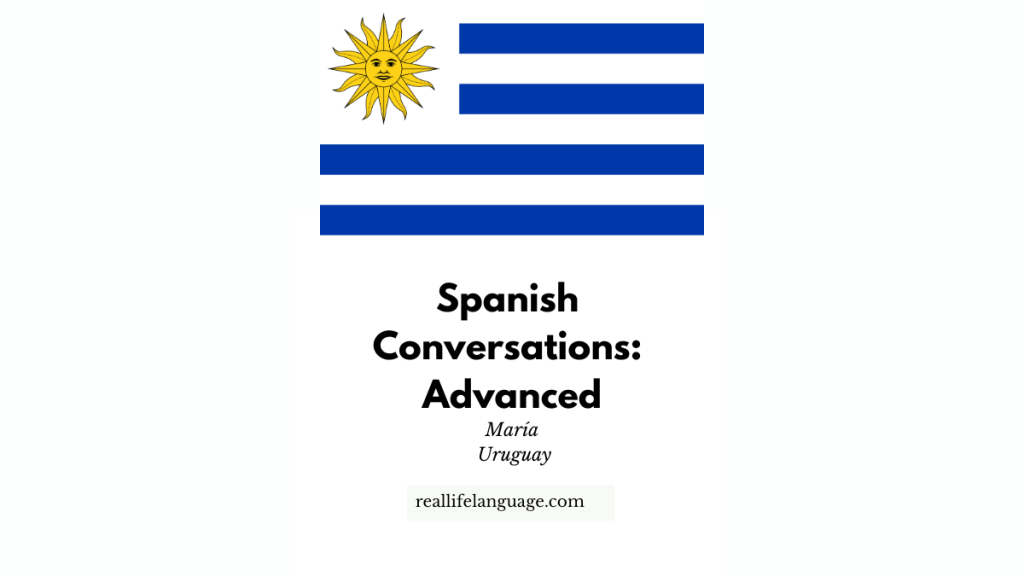
This post repurposes an in-depth interview into a practical resource for learners who want to learn advanced Spanish through authentic speech. The interviewee, Andrés from Sangolquí (a town near Quito), shares personal experiences about volunteering, work, family life, festivals, food and opinions on big topics such as the pandemic and global conflict. Below are key takeaways, useful vocabulary and sample sentences learners can use to practise advanced conversation.
Who is Andrés? — Volunteering and everyday life
Andrés describes himself as someone who enjoys teaching Spanish and helping in his community. He volunteers with a local foundation and with civil protection (an organisation that supports government responses). He uses expressions like echar una mano (to lend a hand) and remangarse / ponerse las pilas (to roll up one’s sleeves / get to work).
- Vocabulary: voluntario (volunteer), protección civil (civil protection), ayuda (help)
- Practice sentence: Siempre estoy dispuesto a echar una mano cuando alguien lo necesita. — I’m always ready to lend a hand when someone needs it.
Women in Ecuador — Tradition and equality
Andrés observes that Ecuadorian society is still traditional in many ways. There is family pressure to marry and have children, yet many people now choose otherwise and expect respect for that decision. Street harassment (whistling, unsolicited comments) is mentioned as an ongoing problem in some places. On work equality, Andrés believes there is progress: in many jobs men and women are paid equally, though opinions can vary.
- Vocabulary: igualdad (equality), presión familiar (family pressure), acoso callejero (street harassment)
- Practice sentence: La sociedad está cambiando, pero aún hay presiones tradicionales. — Society is changing, but there are still traditional pressures.
Economy and housing
Andrés describes Ecuador’s economy as relatively stable but affected by the pandemic. Housing commonly means large houses divided into separate apartments — for example, a second floor turned into an apartment. He warns about legal paperwork and problems that can arise if an owner remodels improperly.
- Vocabulary: departamento (apartment), segunda planta (second floor), papeles (legal paperwork)
- Practice sentence: Es común dividir una casa grande en varios departamentos, pero hay que hacer todos los papeles.
Education — strengths and challenges
Education in Ecuador includes public and private schools. Andrés criticises low teacher pay and a system that sometimes protects students too much — for example allowing late homework without consequence, which can lead to gaps in learning and difficulties later in life.
- Vocabulary: docente (teacher), aprobar (to pass), perder un año (to repeat a year)
- Practice sentence: Si los estudiantes no aprenden lo necesario, luego el mundo real no los va a proteger tanto.
Festivals and leisure — cantonization and popular bulls
Sangolquí celebrates a cantonization festival (the anniversary of becoming independent from Quito) with parades, music, food and dancing. A notable feature is the local “popular bulls” event where temporary arenas are built and people attend for days.
- Vocabulary: fiestas patronales (town/patronal festivals), paradas (parades), corridas populares (popular bull events)
- Practice sentence: Las fiestas incluyen desfiles, comida y las famosas corridas populares.
Food of Sangolquí — hornado, mote and cuy
Andrés highlights hornado (slow-roasted pork), served with tortilla de papa (potato fritter/pancake), mote (cooked hominy) and a salad called encurtido (sour salad). He also mentions cuy (guinea pig) — a traditional dish he personally dislikes — and popular snacks like empanadas verdes, bolones and salchipapas (fries with sausage).
- Vocabulary: hornado, tortilla de papa, mote, cuy, empanada verde, bolón, salchipapas
- Practice sentence: El hornado se cocina en horno de leña y se sirve con tortilla de papa y mote.
Family life and small business
Family is close: Andrés lives just a few blocks from his relatives and eats at his mother’s restaurant often. The family business sells empanadas verdes (dough made from green plantain) and bolones. These meals are great examples for practising food vocabulary and ordering in a restaurant.
- Practical phrase for learners: ¿Me puede traer una empanada verde, por favor? — Could you bring me a green empanada, please?
World events and the pandemic
On global conflict, Andrés is blunt: he calls war senseless and driven by ego and power. Regarding the pandemic, he notes a short-term lifestyle change — people appreciated time with family — but old habits returned. Positively, many people learned to use technology for work and communication.
“a senseless war — egos and pursuit of power.”
Practical language tips for learners
To make this interview useful for learners who want to learn advanced Spanish, practise the following:
- Listen for colloquial verbs: echar una mano, ponerse las pilas, irse de fiesta.
- Learn food vocabulary in context — order the dish aloud and describe its ingredients: El hornado lleva cerdo asado y se acompaña con mote y tortilla de papa.
- Practice expressing opinions about society: Creo que la igualdad de género ha mejorado, pero aún queda trabajo por hacer.
- Use short role-plays: a tourist asking about festivals, a customer in a family restaurant, or a volunteer describing duties.
- Shadow the audio: repeat lines to improve pronunciation and intonation. Aim to mimic pauses and emphasis.
Conclusion
This conversation is a rich resource for learners who want to learn advanced Spanish through real-life topics: volunteering, gender and society, housing, education, festivals and food. Practising the vocabulary and sample sentences above will help learners speak more naturally and confidently. To deepen listening and shadowing practice, watch the original interview and repeat key phrases aloud.
Remember: to learn advanced Spanish, pair focused vocabulary study with lots of authentic listening and speaking practice.
100s of videos to learn Spanish:
https://real-life-language.kit.com/b1531a6404
Learn Advanced Spanish: A Conversation with Andrea from Barcelona

